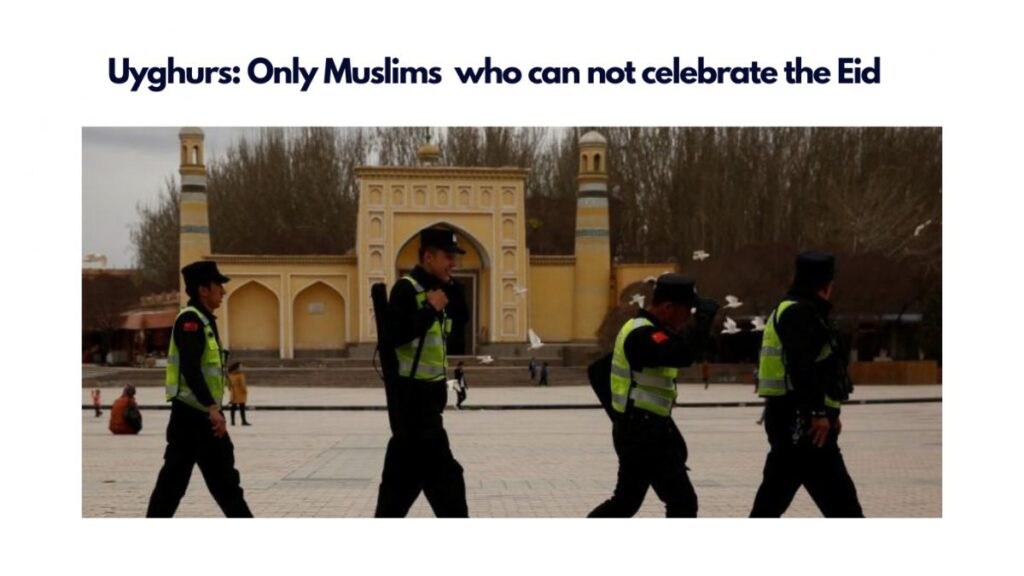By Uyghur Times Staff
On Tuesday, Muslims worldwide celebrated the Eid al-Adha holiday, gathering at mosques or spacious open areas to observe one of the Islamic calendar’s most significant festivals. Eid al-Adha commemorates the story of Ibrahim (Abraham) and his willingness to sacrifice his son as commanded by God. Muslims mark this occasion by sacrificing animals like sheep and goats, sharing the meat with loved ones, and also donating to the less fortunate.
On every Eid, the Imams of the three holiest Islamic sites in the world, along with millions of other mosques globally, lead Dua (Prayer) for Muslims. They seek religious guidance (Hidayet) and pray for the oppressed Muslims worldwide.
However, despite Uyghur Muslims enduring genocide and the most horrific atrocities due to their religious faith, the three holiest mosques have never included them in their prayers, and they continued to omit them during this year’s Eid al-Adha prayers in 2023.
Both Sunni Muslims and Shia Muslims agree on the three Holiest sites in Islam being, respectively, the Masjid al-Haram (including the Kaaba), in Mecca; the Al-Masjid an-Nabawi, in Medina; and the Al Aqsa Mosque compound, in Jerusalem.
Prominent Muslim scholars across the world, such as Zaker Nayif, Omer Sulayman, and Yasir Qadhi, have been raising awareness about the Uyghur genocide for years. They have been calling upon Muslim believers and Muslim countries to stand in solidarity with Uyghur Muslims.
However, Muslim countries and international Islamic groups such as the Organisation of Islamic Cooperation, have openly supported China regarding its Uyghur genocide. Delegates from the Arab League and Palestinian leader Mahmoud Abbas recently visited China, expressing their support for China’s anti-terrorism policies in the Uyghur homeland (Uyghurstan).
